#25 Scottish Mythology
Share
Scotti is a Latin name for the Gaels and is the earliest recorded mention is in the late 3rd century. Originally used to refer to all Gaels in Britain and Ireland, it eventually came to refer only to Gaels in northern Britain. Their kingdom eventually became known as Scotia or Scotland, and its inhabitants came to be known as Scots. In Gaelic, however, Scotland is Alba, derived from Albion, the ancient named for Britain.
According to legend, however, Greeks from Asia Minor sailed the seas and arrived at Croagh Patrick (the mountain of Ireland), County Mayo. They travelled through various places in Ireland, such as Armagh, Kildare and Cork. After finally settling in Bangor, County Down they found themselves continually at war with the Picts. Eventually they crossed the Irish Sea and invaded Caledonia. The conquered territory so conquered was then named Scotia after Scota, Egyptian wife of Spartan commander Nél. The sudden disappearance of the Picts was because they were slaughtered at a banquet given by Kenneth MacAlpin. However, the Picts were believed to have powers like the Fae and moved to underground chambers, brewing lucky heather from secret recipes.
In reality, though, there was a lot of migration between Ireland and Scotland. It is likely that the Picts began integrated with the migrants and become as one nation. A lot of Irish mythology was imported to Scotland, and some was probably written in Scotland. The Ulster Cycle is a group of heroic stories centres around the Uliad, people from North East Ireland. The Ulaid had close links with Gaelic Scotland, where Cúchulainn is said to have learned the arts of war.
The myths and legends of Scotland reflect the nature and seasons of the land. For instance Beira, the Queen of Winter, who raises storms during January and February to delay the arrival of spring. Beira was a tough and brutal old woman who brought deep snow, overflowing rivers and created lochs and mountains. When it gets warmer, she steps aside for the Dual Lord and Lady who share equal power during the following season. Scottish deities were not glorified or widely worshipped, unlike those of other ancient cultures, but more linked with nature, being connected with specific rivers, wells and mountains, etc.
Scotland, though, does have a wealth of mythical creatures such as selkies and kelpies. There are quite a few tales of Changelings, fairy folk, who stole babies from the crib and substituted them with another fairy. The Wulver, a creature with the body of a man and a wolf's head was a benevolent creature, who enjoyed fishing. He left fish on the window-sill of the poor. In the present day Scotland is still full of legends, including the Loch Ness Monster.
According to legend, however, Greeks from Asia Minor sailed the seas and arrived at Croagh Patrick (the mountain of Ireland), County Mayo. They travelled through various places in Ireland, such as Armagh, Kildare and Cork. After finally settling in Bangor, County Down they found themselves continually at war with the Picts. Eventually they crossed the Irish Sea and invaded Caledonia. The conquered territory so conquered was then named Scotia after Scota, Egyptian wife of Spartan commander Nél. The sudden disappearance of the Picts was because they were slaughtered at a banquet given by Kenneth MacAlpin. However, the Picts were believed to have powers like the Fae and moved to underground chambers, brewing lucky heather from secret recipes.
In reality, though, there was a lot of migration between Ireland and Scotland. It is likely that the Picts began integrated with the migrants and become as one nation. A lot of Irish mythology was imported to Scotland, and some was probably written in Scotland. The Ulster Cycle is a group of heroic stories centres around the Uliad, people from North East Ireland. The Ulaid had close links with Gaelic Scotland, where Cúchulainn is said to have learned the arts of war.
The myths and legends of Scotland reflect the nature and seasons of the land. For instance Beira, the Queen of Winter, who raises storms during January and February to delay the arrival of spring. Beira was a tough and brutal old woman who brought deep snow, overflowing rivers and created lochs and mountains. When it gets warmer, she steps aside for the Dual Lord and Lady who share equal power during the following season. Scottish deities were not glorified or widely worshipped, unlike those of other ancient cultures, but more linked with nature, being connected with specific rivers, wells and mountains, etc.
Scotland, though, does have a wealth of mythical creatures such as selkies and kelpies. There are quite a few tales of Changelings, fairy folk, who stole babies from the crib and substituted them with another fairy. The Wulver, a creature with the body of a man and a wolf's head was a benevolent creature, who enjoyed fishing. He left fish on the window-sill of the poor. In the present day Scotland is still full of legends, including the Loch Ness Monster.
